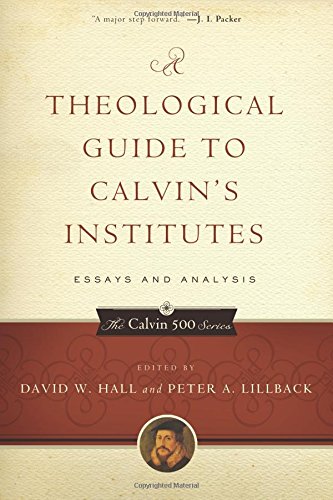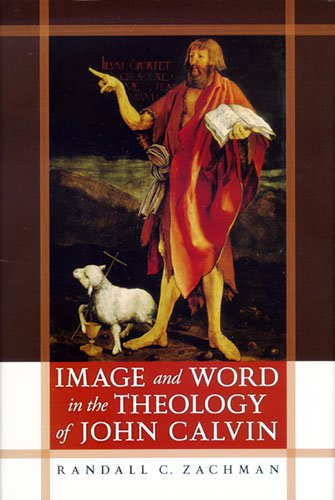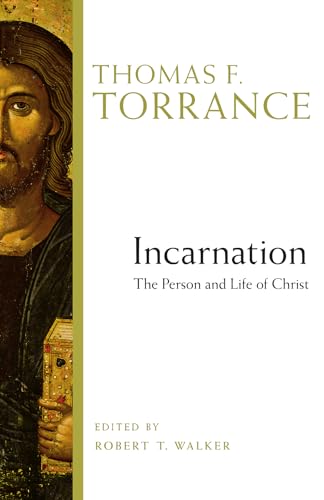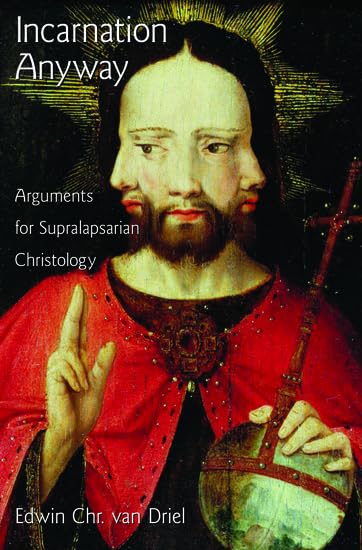Volume 34 - Issue 1
A Lesson from Peter the Barber
By Carl TruemanAbstract
No doubt my two children would cringe at the title of this short piece. Indeed, I can hear their cries now, ‘Dad, barbers are soooo yesterday. Nobody has one of those anymore. It’s a hair stylist or personal grooming consultant you need today!’ Well, that’s a moot point.
No doubt my two children would cringe at the title of this short piece. Indeed, I can hear their cries now, ‘Dad, barbers are soooo yesterday. Nobody has one of those anymore. It’s a hair stylist or personal grooming consultant you need today!’ Well, that’s a moot point. Age has certainly reduced my need for anybody other than my wife and a set of electric clippers to address my cranial thatch; and as somebody the wrong side of forty, I quite like to think of myself as ‘sooo yesterday,’ particularly in terms of tastes in rock music, movies, and worship styles. It is, after all, what I am: a yesterday’s man.
The Peter the Barber in the title is, however, even more ‘sooo yesterday’ than I am myself. He was none other than the hairdresser—or personal grooming consultant—of the most famous man in sixteenth-century Europe: Martin Luther. No doubt, there were those who would have paid Master Peter a hefty sum to have been a little more casual with the razor than he was. In fact, had Peter been less competent in his profession, he could certainly have altered the path of European history with the proverbial flick of the wrist.
But Peter’s significance lies not so much in his ability to style hair (contemporary portraits of Luther indicate a better cut than that sported by Donald Trump but nothing as suave as, say, a Clive Owen). No, his significance lay in the fact that he struggled to pray, and one day he shared his problem with his most famous customer. Despite the mountain of work which he typically faced, his most famous customer still found time to go home and write him a treatise on the same.
The incident is instructive for a whole host of reasons. Now I am not of the school that sees the need as constituting the call. Just because somebody approaches me with a problem does not mean that I am called upon to help them solve the problem. In some cases this might actually be a mercy to the one in difficulty: if anyone comes to me with a problem with their computer, car engine, or anything involving mechanical or technological skill, then I need to resist the temptation to help them as their condition at the end of my assistance will be guaranteed to be worse than it was at the start. No, the need does not necessarily constitute the call: that is crucial wisdom for anyone in any kind of leadership position, especially in the church, if they wish to retain their sanity and limit the damage which they do.
Yet the Peter incident reminds us that one key element of Christian leadership is caring about people, even those who might be considered ‘little people’ in the eyes of the world. Peter was a humble barber; he was not even a model citizen; but he was one of Luther’s parishioners, for whose soul Luther was supposed to care. Luther’s response—to write him a special treatise on prayer—speaks volumes of the true heart of a man who really cared for his people. Luther was without doubt one of the busiest and most hard-pressed men in Electoral Saxony at the time, if not in the whole of Europe, and he had a million and one more important duties pressing in on him from all sides; but he found time to write a letter of spiritual counsel to this individual. All of Luther’s learning, all of the things he had done, all of the adulation he received, all of the great and the good who called on him for advice—none of this distracted him from caring for the people in his congregation. Indeed, this is exactly what one would expect from a leader who tried (and on occasion spectacularly failed) to work in accordance with Paul’s teaching in 1 Cor 1 and 2.
If the writing of the treatise speaks volumes about the heart of Luther for his people, then the content speaks volumes about Luther’s theology. The treatise is short and rich, and nothing can substitute for readers looking at it for themselves, but I will summarise its central elements here. The whole is cast as advice to Peter based on Luther’s own practice. When he becomes cold in prayer, he says, he flees to his room to read the Psalms or, if it is the right time, to church to hear the psalms sung and read. He also repeats to himself the Ten Commandments, the Apostles’ Creed, and sayings from Christ, Paul, or the Psalms. He also tries to frame the day with prayer: make it the first business of the day, he advises, and the last thing you do at night. Earthly callings must not be neglected by reason of prayer; but prayer must be the priority. Prayers should not be long and empty babbling; rather they should be structured around the Lord’s Prayer and meditation upon the Ten Commandments (important for Luther as a reminder of our unworthiness and dependence upon Christ). All this Luther sees as warming the heart and moving us towards prayer that spontaneously cries out to God.
To anyone familiar with late medieval piety and, indeed, with Reformation practice, it is clear what Luther is doing. Medieval catechetical instruction was structured by the elements of the Apostles’ Creed, the Lord’s Prayer, and the Ten Commandments. Luther’s answer to the heart grown cold is well-established and catechetical: return to the basics of the faith, and remind yourself of those. It is also rooted in the idea that prayer is not simply a spontaneous, emotional response to God; rather, it is an essential, imperative part of the Christian’s walk. As a husband has no choice but to love his wife—it is a command, however he might feel about it at any given time—so the Christian has no choice but to pray, however cold his or her heart might be. And the best way to do that, if you lack enthusiasm, is the tried and tested approach of going back to the basics.
Another aspect of interest, however, is Luther’s initial suggestion that, if the problem occurs at a time when the church is meeting, Peter should get himself to church. The corporate aspect of worship is important. Church is not somewhere where Peter should go once he has sorted out the problem of this lack of enthusiasm; it is the best place to go precisely to sort that problem out. Church, for Luther as for the other Reformers, was not simply a place to go and hear someone explain the Bible and then sing a few hymns or choruses. It was the place where the voice of God was heard in the reading and preaching of His word and where the believer, as part of the corporate body, responded by singing God’s praises. Indeed, it was the primary focus of the Christian’s life of worship. If Peter was struggling with prayer but was not present himself in church, then, guess what? He could expect prayer to be precisely the difficult chore which it had become.
I reread Luther’s treatise on prayer regularly. It is part of a trend I have noticed in my own habits over recent years: the older I become, the more I appreciate the simple things in the Christian life. I was asked recently what I read to keep myself sane (if indeed I am such), and I responded that the Heidelberg Catechism, with its pastoral overview of the basics of the Christian faith, has become my constant companion over the years. As with Luther’s suggestion to Peter, the Catechism covers the Apostles’ Creed, the Ten Commandments, and the Lord’s Prayer. It is pretty basic material. It takes less than an hour to read, but more than a lifetime to master. In fact, it seems to me as I look back over time that the more theology I have read and the more rarified the academic atmosphere in which I pursue my specific research interests, the more the basics have come to be significant in my daily life and the more I have come to realize that, far from having mastered the A-B-Cs of the Christian life, I need to remind myself of them again and again. Luther’s little book captures this brilliantly: there really is no arcane secret to orthodox theology, to a vital Christian life, to deep and meaningful prayer. It is all about discipline in the small things. Luther’s book also reminds me that church is the first place I should be if I want to live a healthy Christian life; I cannot do that properly by locking myself away in my own room anymore than a rugby player can hone his skills without the benefit of a team.
This is where the rub is for most students of theology. Protestant evangelicalism is a religion of the book. Its very literary focus lends itself to academic ambition, and such is not bad in itself. Christian theologians, like Christian footballers or Christian bank managers, are called upon to be the best they can be in their chosen calling, but when intellectual excellence becomes an end in itself, at least two unfortunate consequences follow. First, we lose sight of the basics, the very things that are the meat and drink of the Christian life, both in terms of theology and practice. This is where things like catechisms and the regular discipline of church attendance are so important for students of theology. Second, we lose sight of who is and who is not important: we crave the approval of those who despise God’s word or who use that word simply as a means of self-promotion, and we look down our noses at the Peter the Barbers of this world. Human wisdom comes to supplant divine foolishness, and as any reader of 1 Corinthians knows, divine foolishness is infinitely wiser than the greatest human wisdom.
Sadly, the tale of Peter the Barber has a somewhat sad ending. Shortly after Luther wrote him this treatise, he got drunk and stabbed his son-in-law, who had claimed (presumably while in a similarly intoxicated state) to be invulnerable to wounds. Such was not the case, and Peter escaped the death penalty only because Luther interceded on his behalf and managed to have the sentence commuted to lifelong banishment. Yet even this speaks eloquently of Luther’s care: even when Peter had let him down so badly, the busiest man in the European Reformation found time to speak up on his behalf. He could do that because, theological genius as he was, Luther was a true Christian leader who never lost sight of the little things of the Christian life, whether doctrines, disciplines, or disciples.1
- ^ Martin Luther’s treatise on prayer can be found in the following works: Martin Luther, “To Peter Beskendorf,” in Luther: Letters of Spiritual Council (ed. and trans. Theodore G. Tappert; Philadelphia: Westminster, 1955), 124–30; idem, “A Simple Way to Pray,” in Luther’s Works (ed. Jaroslav Jan Pelikan, Hilton C. Oswald, and Helmut T. Lehmann; trans. Carl J. Schindler; Philadelphia: Fortress, 1968), 43:187–209; idem, “ Luther the Confessional Theologian: A Practical Way to Pray (1535) ,” in Martin Luther’s Basic Theological Writings (ed. William R. Russell and Timothy F. Lull; 2nd ed.; Minneapolis: Fortress, 2005), 12–17.
Carl Trueman
Carl Trueman is Professor of Biblical and Religious Studies at Grove City College in Grove City, Pennsylvania.
Other Articles in this Issue
Why are we talking about preaching with power? Because of what Christianity is...
In the mid-twentieth century, one could readily find informed Protestant observers acknowledging the Calvinist tradition’s major missionary contribution...
The summer of 2007 was the wettest in Britain since records began, registering over twice the usual amount of rainfall between May and July...
How Far Beyond Chicago? Assessing Recent Attempts to Reframe the Inerrancy Debate
by Jason S. SextonThe doctrine of inerrancy has been a watershed issue among evangelicals in the West, perhaps now more evident than ever...
Quite apart from commentaries and hermeneutical textbooks, books on the Bible—its nature and ultimately its authority—have been appearing with daunting frequency of late






